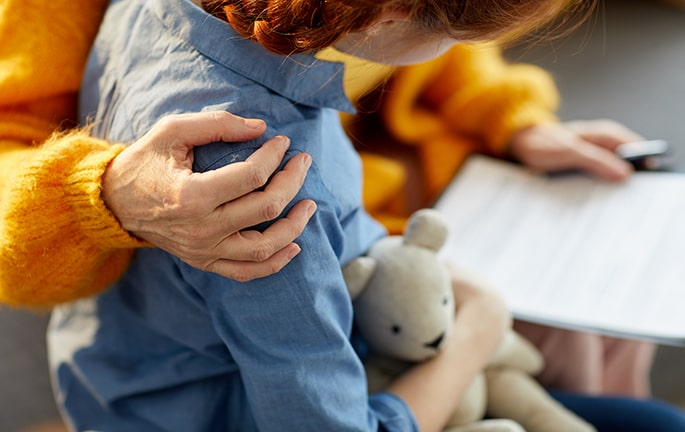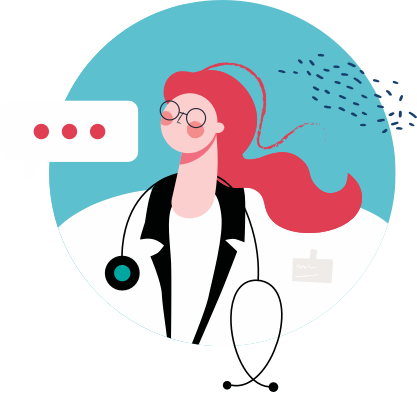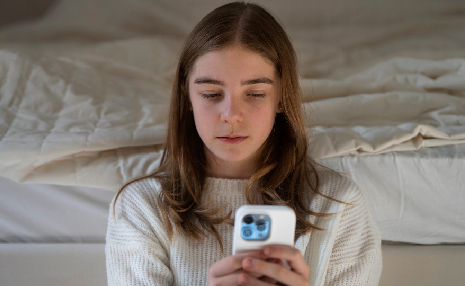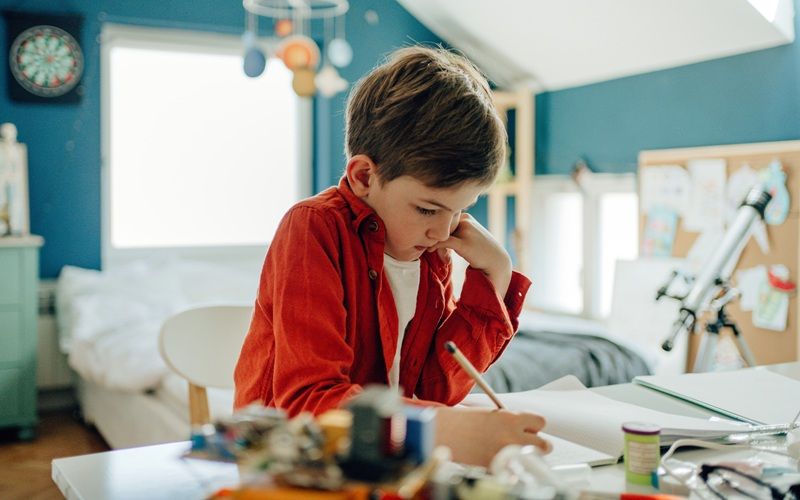Child and adolescent psychiatry
Discover everything about child and adolescent psychiatry: what it is, its field of study, and what it treats. We discuss the main psychiatric problems and disorders in children and adolescents, as well as the most commonly used therapies to address them. Schedule your consultation at one of our hospitals.

What is Child and Adolescent Psychiatry?
Pediatric psychiatry focuses on the prevention, diagnosis, and treatment of psychiatric diseases in children and adolescents. Its main function is to thoroughly understand and detect disorders that affect behavior, development, and emotions in infants, school-aged children, and young people.
In addition to specializing in mental health issues in general, these doctors must have in-depth knowledge of the specific characteristics of psychology and cognitive development in children and adolescents.
What does Child and Adolescent Psychiatry study?
Child and adolescent psychiatry studies the nature and management of mental disorders and problems that manifest during pediatric ages. This branch of medicine is capable of applying psychological therapies or resorting to pharmacological treatments. The pediatric psychiatrists at Quirónsalud specialize in various areas to provide a more specific approach in each case:
- Pediatric psychiatry: focuses particularly on mental disorders in minors and the treatment of symptoms, which can vary widely.
- Pediatric psychology: addresses psychological issues exhibited by children and adolescents and treats them with therapy.
- Speech therapy: tackles language disorders, both oral and gestural communication, and learning difficulties in reading and writing.
- Occupational therapy: helps children and adolescents achieve the greatest possible independence and adapt their daily activities to their specific needs.
- Physiotherapy: treats school-aged patients with psychological problems and helps them improve their quality of life by utilizing the direct relationship between the state of the body and the mind.
Who is it aimed at?
Pediatric psychiatry treats infants, children, and adolescents up to the age of 14 with psychological disorders, thought disorders, developmental difficulties, and behavioral problems that also affect those around them. Therefore, part of the scope of this specialty involves helping the entire family.
Techniques, Procedures, and Diagnostic Methods
As mentioned earlier, child and adolescent psychiatry can apply pharmacological treatments or psychotherapy techniques depending on the specific needs and condition of each patient. The most commonly used methods in consultation include:
- Psychoanalysis: uses play to diagnose and treat mental health issues in minors, helping them identify their feelings since they are not being directly observed and feel more open with the specialist.
- Cognitive Behavioral Therapy (CBT): helps children and adolescents understand the relationship between their thoughts and behaviors, with the ultimate goal of modifying them.
- Music therapy: studies patients' reactions to music and later applies it as treatment to stimulate changes in behavior and mood.
- Cognitive restructuring: allows children to identify how their thoughts influence their behavior, thus helping them change negative behavior patterns.
- Systemic therapy: is a type of psychotherapy that focuses on family dynamics, with all members participating, as it is the system in which children develop.
Diseases and symptoms
Main Pathologies and Diseases
The most common psychiatric disorders in children and adolescents treated in consultation include:
- Attention Deficit Hyperactivity Disorder (ADHD)
- Autism
- Asperger’s Syndrome
- Anxiety
- Obsessive-Compulsive Disorder (OCD)
- Depression
- Tourette Syndrome
- Anorexia
- Psychosis
- Jealousy
- Gender Dysphoria
- Affective Disorders
Related Symptoms
The symptoms that children and adolescents with these problems commonly exhibit include:
About the Child and Adolescent Psychiatry Consultation
We solve any doubts you may have before you see the specialist
The first consultation with a child and adolescent psychiatrist is to establish a trusting relationship and get to know both the patient and their family. The appointment will be divided into two parts so that the doctor can observe the differences between the child’s behavior when alone and when accompanied.
Parents or legal guardians play a key role in the sessions, as the specialist will establish the treatment based on their input and approval.
What should you consider?
It is recommended to consult a pediatric psychiatrist when a child or adolescent shows developmental issues, behavioral problems, difficulty managing emotions, or has experienced a traumatic event.
In most cases, the specialist will conduct a significant portion of the therapy sessions alone with the patient so they feel free to express their thoughts and feelings. When necessary, family members will be required to participate for a more comprehensive approach or to delve into specific aspects.
What should I bring to the consultation?
Previous psychological reports and school assessments help the psychiatrist better understand the child or adolescent. A detailed list of the exhibited symptoms and any family history of mental disorders is also useful.

If you have any further questions, please contact us through the Patient Services telephone number: 900 301 013





































